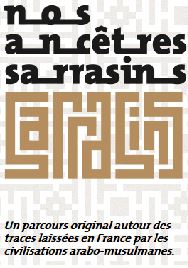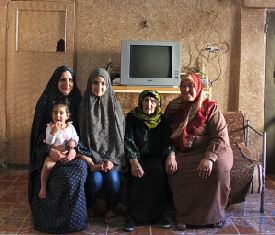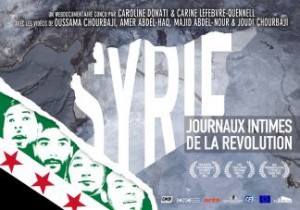WEB-DOCS SELECTED FOR PriMed 2015
Retrouvez ici les webdocumentaires sélectionnés pour l’édition 2015.
4 STELLE HOTEL
by Paolo PALERMO and Valerio MUSCELLA
www.4stellehotel.it
“4Stelle Hotel” is a web-documentary about life in a hotel on the outskirts of Rome taken over by 200 families from 20 different nations: “an ordinary day in an extraordinary place”. It’s the story of a self-organized, multi-ethnic community fighting for a better future. They have created a unique social experiment: trying to live together in their cultural and linguistic diversity. For them, having a house is not only a necessity, a refuge, but a right to claim and defend.
Paolo PALERMO was born in Catania in 1985. He studied in Rome at the Cesare Zavattini School of Documentary Film. Today he works as an independent film-maker.
Since 2012 he has collaborated with the Archivio Audiovisivo del Movimento Operaio e Democratico,making documentaries about social issues. He also works as cameraman on television and film productions.
Valerio MUSCELLA was born in Rome in 1985. He is a photographer and psychology graduate.
He has two experiences in the world of international cooperation: one in Bolivia and one in Albania. He collaborates with the Archivio Audiovisivo del Movimento Operaio e Democratico and is currently working in a reception centre for asylum seekers and political refugees
NOS ANCETRES SARRASINS
http://nos-ancetres-sarrasins.francetv.fr/
by Robert GENOUD and Naji EL MIR

This web documentary builds an original journey around the material and immaterial traces left in France by the Arab-Islamic civilization.
French history textbooks claim “In 732 Charles Martel stopped the Arab invasion at Poitiers”, and apparently the whole Arab-Islamic presence on French soil then disappeared until the 20th century when North African workers arrived!
However, recent archaeological discoveries show the Arab-Muslim presence in France from the 8th century! This Saracen past has not yet penetrated the French national narrative, which has much more to say about the Gauls and the Romans, the Franks and the Normans.
But this heritage exists! A trip/tour in the astrolabe will show you archaeological remains, historical facts and legends. A whole and little known Arab-Islamic legacy, to which France today owes much more than we think!
“Nos ancêtres sarrasins” invites you to do your own investigation into this legacy.
 PALESTINIENNES, MERES PATRIE
PALESTINIENNES, MERES PATRIE
www.cuej.info/mini-sites/l_obstination-et-l_esperance/
by the CENTRE UNIVERSITAIRE D’ENSEIGNEMENT DU JOURNALISME (CUEJ) – STRASBOURG UNIVERSITY
“Palestiniennes, mères patrie” is a web documentary which presents four generations of Palestinian women:
– The Facebook generation, personified by the ubiquitous youth in the Palestinian territories. Dream of going abroad, they create a virtual life while waiting for the life’s promises to be fulfilled;
– The Intifada generation of women, many of whom have studied but are struggling to find work;
– The Arafat generation of women who have embraced their people’s cause at the price of sacrificing their kin;
– The Nakba generation – the oldest – women exiled in 1948, the key to the family home forever in their pocket.
These four generations are shown through portraits, graphics and stories.
Centre universitaire d’enseignement du journalisme (CUEJ) – Université de Strasbourg
“Palestiniennes, mères patrie” was created by 27 students of the CUEJ – University Centre for Teaching Journalism at the University of Strasbourg – supervised by their teachers. The web-documentary was made in May 2012 in Palestine’s West Bank. Every year at the end of the masters course, the students spend a month completely immersed in a country of which they know neither the culture nor the language. Working with university students in the host country, they have to produce an on-the-spot journalistic achievement, which is presented to our partners before they return to France.
The web documentary “Palestiniennes, mères patrie” is one of those productions.
SYRIE, JOURNAUX INTIMES DE LA REVOLUTION
http://syria.arte.tv/
by Caroline DONATI and Carine LEFEBVRE-QUENNELL
 A Alep, Majid filme une brigade de l’armée libre,
A Alep, Majid filme une brigade de l’armée libre,
In Aleppo, Majid films a brigade of Free Army soldiers.
In Damascus, Amer explains the siege of a strategic suburb, Daraya.
In Turkey, Osama embodies the political activism of young revolutionaries.
A refugee in Lebanon, Joudi talks about Assad’s prisons.
Day and night they talk to us about their disrupted lives.
The exaltation at the start, the hope, then the destruction, the deaths and the world’s indifference.
The regime’s murdering madness on one side, radical fanatics on the other.
None of them could have imagined the horror they face today.
For two years, this web documentary has followed them step by step in their fight for democracy.
Caroline DONATI is a journalist, author and consultant, specializing in the Middle East.
Permanent correspondent in Beirut between 1994-2000, she is the author of “L’Exception syrienne: entre modernisation et résistance” (La Découverte, Paris, 2009).
Between 2011 and 2013 she covered Syria for Mediapart, an online news site. In 2012, with director Carine Lefebvre-Quennell and Syrian citizen journalists, she began the web-documentary “Syria, Diaries of the Revolution” (DKB Productions). Broadcast on Arte and Mediapart since 2014 and added to continuously ever since, the work has been given numerous awards and is supported by Canal France International and the European Union. With Osama Chourbaji she is also developing New Syrian Voices, a network of Syrian citizen journalists.
After studying theatre, Carine Lefebvre-Quennell worked on feature films as assistant director. After an internship at the Ateliers Varan in 1998 she began making documentary films, at the same time coaching actors. Her first documentary, “Alzheimer mon amour” (26′) was broadcast in 1999 on “Envoyé Spécial”. From 2001, her long collaboration with Point du Jour resulted in five 52′ films, all broadcast on France Televisions and web-tvs.
Recently she has run a film writing workshop for inmates of the men’s prison at Fleury Mérogis. Since the end of 2012, she has worked with journalist Caroline Donati, and in collaboration with Syrian citizen journalists, for the web-documentary “Syrie, journaux intimes de la révolution” (DKB productions), winner of several awards and broadcast on Arte and Mediapart.